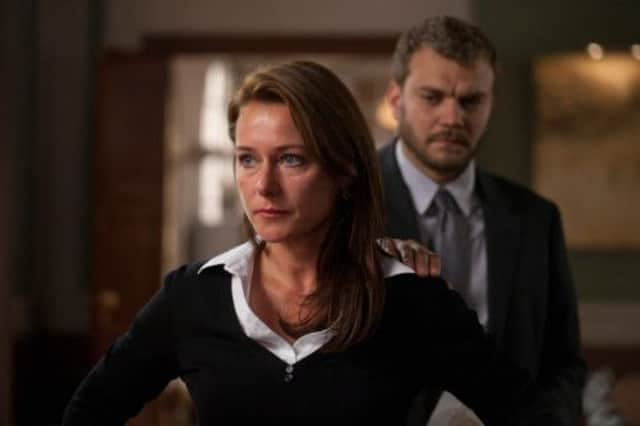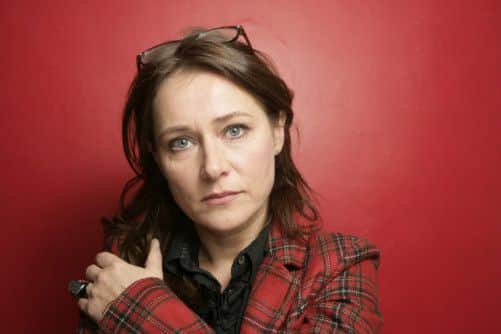Scotland’s focus on Denmark for great TV drama


Only connect! EM Forster’s words came to mind as I investigated the recent phenomenal success of Danish television drama. Series such as The Killing and Borgen – despite being in the Danish language – have achieved unprecedented domestic and foreign acclaim for a country with a similar population to Scotland.
This is no accident, but the result of deliberate policy decisions made within the screen sector led by visionary producers in the drama department of the national broadcaster Danish Broadcasting Corporation (DR). These decisions display a recurring theme of connection – perhaps not surprising for a people characterised as co-operative and a country which gave the world Lego.
Advertisement
Hide AdAdvertisement
Hide AdCreative Scotland this year launched a “film sector” review. The term “film” in this context seems dangerously unconnected given the way moving images are enjoyed, not just in cinema but via television, video games and an increasing array of digital devices. The term “sector” is also unhelpful as it is in danger of bracketing off moving images from potentially synergistic relations with drama, literature, art, photography and dance.


And, of course, the recent upheaval at the top of Creative Scotland was the result of a disconnect between Scotland’s creative artists and its discredited managerialist “value for money” policies. I suggest looking closely at Denmark for possible ways to shape Scotland’s creative future.
Connect with the audience
The first lesson is that DR producers set out to connect with the audience, to make programmes that people want to see rather than what DR wants them to see. TV drama is expensive, making foreign co-production funding and pre-sales essential. So DR producers set out to make programmes to appeal to domestic and foreign audiences.
Ingolf Gabold, now-retired executive producer of The Killing and Borgen, called this “double storytelling” – the story satisfies the public service remit of DR to mirror Denmark and its people but at the same time addresses global issues, such as gender roles, immigration, surveillance and terrorism. As Gabold says: “The immediate story or plot isn’t enough. The overlying story, which goes across national borders, is what makes it. Borgen, for example, is about someone who gains political power but has to cede power at home. The story of women juggling work and family is familiar across the Western world.”
The second lesson is that this comes from an “ecology” rather than a sector. Since the mid-90s, DR’s drama producers have viewed film and television as inextricably connected. TV drama changed from “TV-theatre” to being shot and edited with a cinematic use of camerawork, lighting, colour, music and so on.
At the heart of the whole process is the respect granted to scriptwriters. In UK TV drama, once screenwriters have delivered the script, they are usually unwelcome on set or in the editing suite. However, Danish television places the screenwriter at the centre of each stage from conception to production and post-production. Following the practice of American TV drama production, the principal screenwriter becomes the “showrunner” whose single creative vision coheres the work of the creative team.
DR’s practices show creativity is fostered by teams working in a mutually supportive way to sustain a single creative vision. It means looking outside the nation to see how creativity is fostered and adapting ideas to one’s own context. It means wrapping up the discourses of one’s own nation in rich engaging narratives. It means close engagement with education and driving up the skills of those who hope to work in the screen industries.
What is impressive about the Danish experience is its planned, connected character. Surely this is a model for Scotland. Why don’t we see BBC Scotland, BBC Alba and STV co-operating with Celtic and Nordic nations? We have an advantage of striking urban, rural and wild settings. We share the same economic, political, cultural and social issues as the rest of Europe. Every day’s news brings up Scottish stories with transnational resonance. Surely a truly creative Scotland is capable of wrapping engaging Scottish-based stories in a cinematic style with stunning locations.
Advertisement
Hide AdAdvertisement
Hide AdIt seems to me the lesson from Denmark is that the Scottish Government, Creative Scotland and broadcasters need to take leading roles in connecting and financing the “Lego” pieces of our currently dysfunctional screen sector. If this is done, then surely creative and commercial success will follow.
• Rick Instrell is a member of the management committee of the Association for Media Education in Scotland www.mediaedscotland.org.uk